"What a blessing it is to be together with someone who you love," Erasure's legendary vocalist Andy Bell exclaims.
It's early July, a few months into a global pandemic, and Bell is stuck quarantining an ocean away from the man he loves. Still, his zest for life and love is palpable via a Zoom call with The Advocate. And 34 years after Erasure's first album was released, the group's infectious energy pops in Bell's vocals and Vince Clarke's singular synth style on their latest album, The Neon, released in late August.
While Bell and Clarke (who was with Depeche Mode and Yaz before Erasure) wrote the songs, which conjure both nostalgia and hope, in the summer of 2019, its release in 2020 is timely. Meanwhile, Bell, who's in London while his partner Stephen Moss is in Miami, with no signs of a chance of traveling to be together until January, brims with revelatory love as he speaks. That energy is reflected in the new album.
"Last year [when he and Clarke wrote The Neon], I was with my partner, which you can't help take it for granted [when] you're together," Bell says. "It's hard because of the pandemic. And you just don't think about what a blessing it is to be with the person that you're in love with."
The Neon is an ode to love and an homage to an affinity for music and the joy of hearing something that moves you for the first time.
"I think Vince was going through the same thing," Bell says of writing the album in Brooklyn last summer with Clarke, whose praises Bell sings. "It was kind of like this love of pop music maybe from when I was 16, 15 years old, that was right at the beginning of the '80s."
"There was so much variation in music then. In the U.K., we had punk, then rock, new wave, twotone, romantic, then electronic music came in, disco. This huge wave of music. It reminded me of the time of getting so excited when something was coming out -- when you knew Voulez-Vous from ABBA, the album, or ELO's Greatest Hits or Kate Bush's Hounds of Love" was coming out. "Actually having the music is like owning a piece of art," Bell says, with a special nod to the type of music he and Clarke would eventually create together. "When electronic music first came into my mind, it just kind of took my body over. Those electronic noises seemed in some way to give me acupuncture with music."
"The very first electronic track I heard was 'I Feel Love' by Donna Summer," he recalls.
"The greatest electronic album for me, apart from Yazoo [a.k.a. Yaz, Clarke's band with Alison Moyet], was the Human League's Dare, with 'Don't You Want Me Baby' on it," he adds.
At home in London, Bell reminisces about the early days of being one of only a few out gay artists. The most resonant out musician at the time was Jimmy Somerville of Bronski Beat and later The Communards.
"I was so excited when Age of Consent [Bronski Beat's first and very queer album] came out, especially like 'Smalltown Boy.' I mean, it was amazing," Bell says. "Still, Jimmy is a hero of mine. He's a hero. That was it, really, I just felt like I was backup for Jimmy a little bit."
For those who grew up on '80s alt-music, Bell's breezy memories of heroes of the time are pure nirvana. He recalls "an amazing pub in London called the Bell. It was really political, this pub. We were always raising money, going on marches... In this pub, you would see Jimmy [Somerville] in there. I think, Morrissey [then of The Smiths] would be in there, Marc Almond [Soft Cell] would be in there. We had this solidarity," he says.
Speaking of "small-town boys," on The Neon's "Kid You're Not Alone," Bell offers advice to an otherized and bullied young person, a song he says is a bit of a letter to one's younger self
"When I was younger, like 10 years old or something, and you get called names and you don't even know what those names mean. You get called 'queer' or 'poofter' [a British epithet for a gay man] or whatever, and you don't know what those names mean. You can't look it up in the dictionary -- 'poofter,' because it's not in there," Bell shares. "But when you did read it, if you could find it, it was so derogatory and horrible, and saying it was a mental illness and all of this kind of stuff."
But Bell had a coping mechanism for when he was bullied. "I used to think that I was an alien that had come down somehow. I was very angelic when I was little and had this lovely voice coming out," he says. "I thought, Oh, that's my purpose. My purpose is only to be an angel."
The Neon, which ends a trilogy of sorts after Erasure's last album, World Be Gone, hearkens to a nostalgia for the ways in which music was anticipated and discovered in days gone by while also being entirely of-the-moment. Bell is firmly centered in the present, joyous about the love he has in his life, but he's also generous in discussing his contribution to queer visibility and how it was meaningful to those who experienced it at the time. "It really just happened. I know it seems like a conscious decision but it was almost a subconscious decision. It just all came out at once," Bell says of the fact that he just couldn't be in the closet. "To me, it's Mother Nature. I think she's amazing."










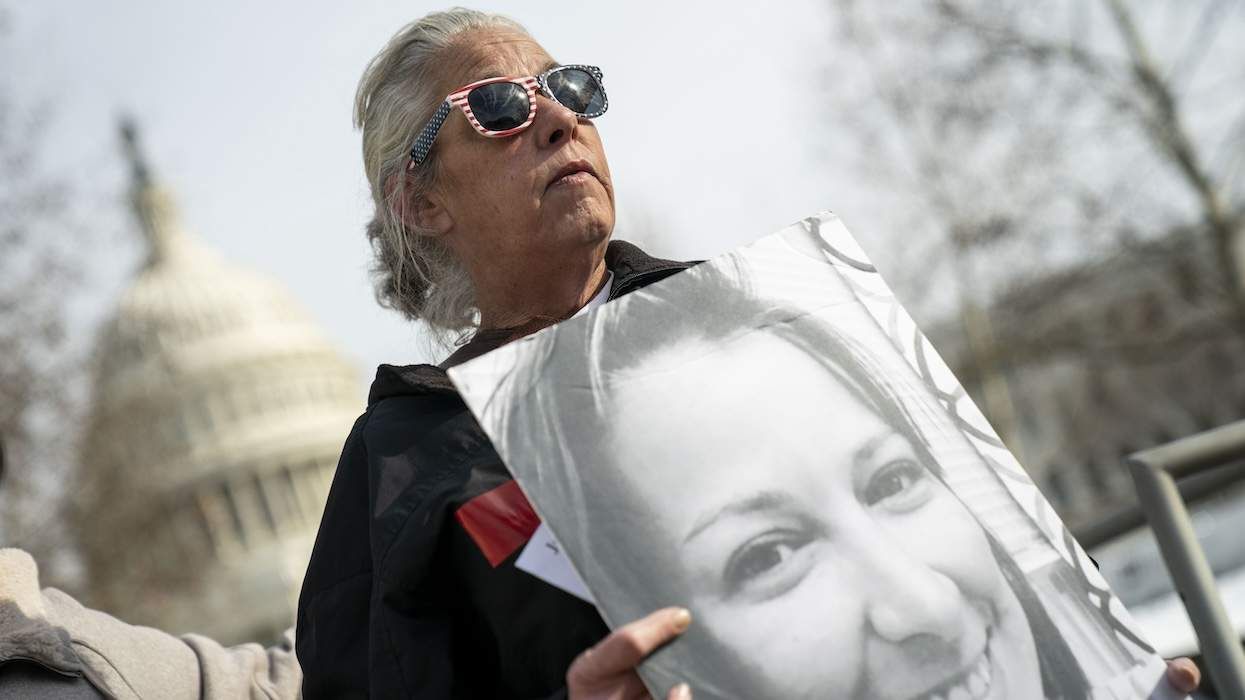
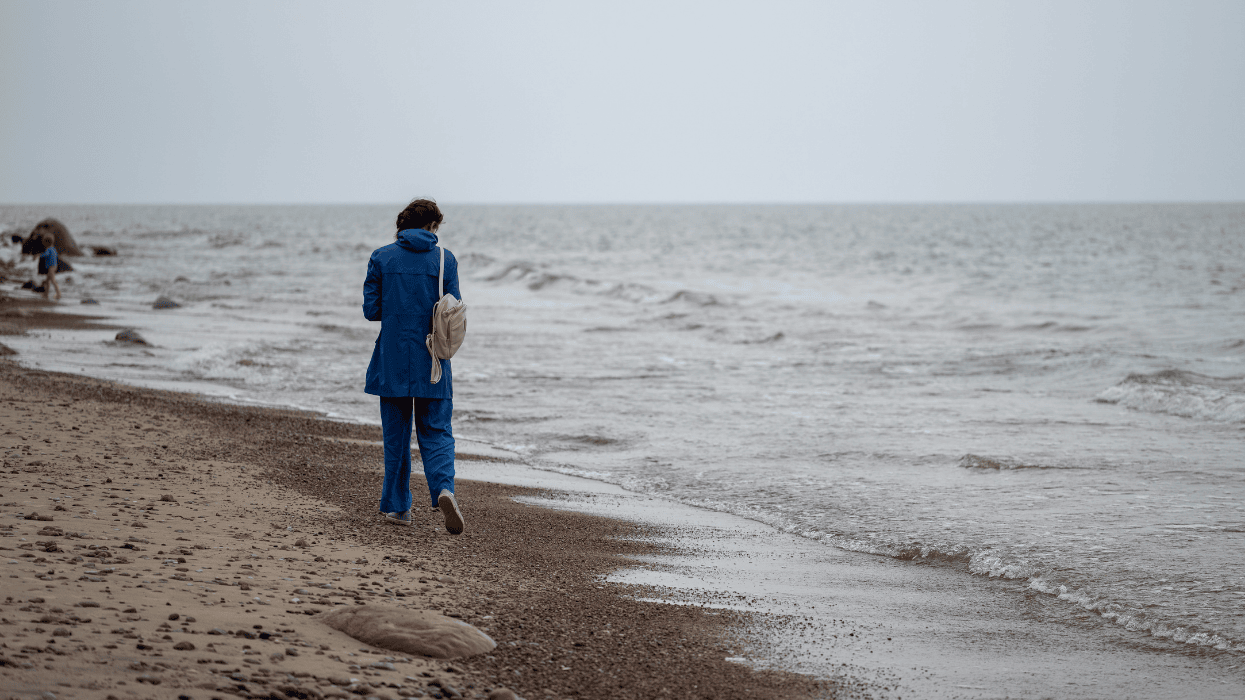

















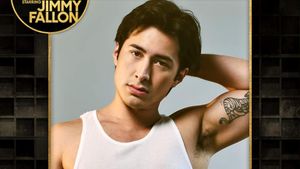



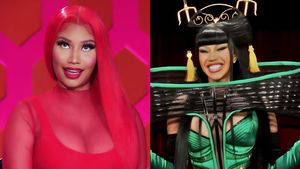















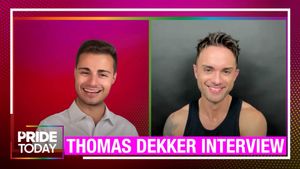










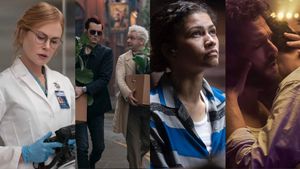








Charlie Kirk DID say stoning gay people was the 'perfect law' — and these other heinous quotes